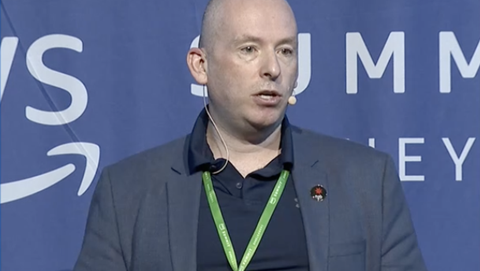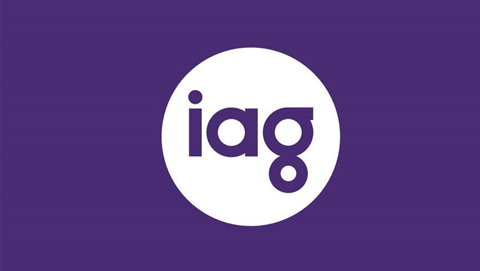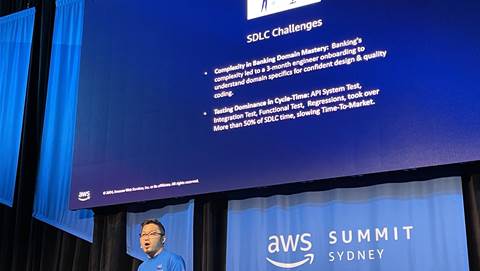If the notion of winning millions in a lottery by guessing a series of randomly generated numbers and an immutable distributed ledger like blockchain seem worlds apart, don’t tell Scott Owen, the senior manager of cloud and infrastructure at wagering and gaming giant, Tabcorp.
As the technologist bringing together one of the most challenging blended families of IT and software in Australia – the merger and integration of Tabcorp and Tatts Group – Owen is looking to a future where massive regulatory overheads can be automated, audited and verified without a doubt.
And all because of the lottery ticket – Australia’s favourite way to fantasise about what might happen if millions of dollars fell from the sky.
Few Australians appreciate it, but when they buy a ticket to their dreams each week they’re actually taking part on one of the most complex and strictly regulated forms of revenue raising ever concocted, with state governments a partial beneficiary of the funds.
That means for every draw, in every state, there has to be a cast iron record – literally a ledger – of every transaction that went in to make up the prize pool, and every transaction that went out, alongside checking the validity of tickets.
And, Australia being a federation, every state regulates lotteries and gambling somewhat differently, meaning that Owen is in charge of not just one or two main ledgers, mainly in the form of SQL databases, but more than he cares to mention catering for every jurisdiction in the country.
Just the ticket
If blockchain, or distributed ledger technology, is sometimes dismissed by IT hard heads as a ‘solution looking for a problem’, Owen reckons he has that problem, and he has it in spades.
He’s not in it for the dreamy-eyed, blue sky data governance Nirvana; he’s in it to cut database costs (he’s the infrastructure guy), disparate systems and bespoke and legacy products that can add weeks or months to making changes to core product platforms.
With entertainment options abounding, the pressure to have a stack that can evolve and respond has never been greater.
Because of the high levels of lotteries regulation, the idea of moving fast and breaking things has never really been an option, but there is a need to move faster.
Lotteries have worked well for centuries, but in the age of apps on glass, other forms of flutter-based entertainment are sure to gradually encroach as queues at the newsagent gradually disappear.
Owen says about 80 percent of lotteries and are sold via retail rather than online, but it makes perfect sense to have the digital option ready to roll.
(Just how competitive the mobile ‘entertainment’ space is getting is illustrated by local pokies giant Aristocrat’s online games play Big Fish Games a year ago up with Disney through the launch of Toy Story mobile game.)
“This is still early days, we're still in the start-up [but] we've done an experiment and we proved that we could build a whole platform on it,” Owen tells iTnews of Tabcorp’s blockchain foray.
Making and breaking records
Essentially a proof-of-concept or demonstrator, Tabcorp’s first swing at DLT in anger has been to find out whether it’s possible to build a parallel transactional ledger to its existing centralised databases and then see how the two compare and behave.
“We have different types of SQL database, whether it's Microsoft or Postgres or, we have a whole range of them.
“Part of this is like looking, looking at how we can take that open source transactional ledger, which is somewhat like it's like a database … it's getting more and more like it over time. And almost disrupting those …other databases and then distributing our data in a more geographically capable kind of way,” Owen says.
“We want to be able to sort of break ourselves up and not tie ourselves to those locations. So our data can become as simple as … a file on a server, you know, in a very compressed format tha’s a very easy data structure to look at, to manipulate or modify in the future.”
Owen isn’t dropping any vendor names, but he is confident there is opportunity to disrupt database management platforms now in the market.
“Because they're very expensive – you know the ones I mean – really expensive and difficult to operate and very specialised. Technology has the chance to sort of jump in there and disrupt that that infrastructure level,” Owen says.
Customer personal data not in scope
Asked what kind of data could be roped into Tabcorp’s blockchain pilot, Owen is quick to kick the use of any personally identifiable information well into the long grass. The project, he stresses, is essentially about tokenizing transactional information rather than personally identifiable data.
“We’re not planning on having customer data in this blockchain… it's not our plan, it’s largely to tokenize the data. It’s tokens, balances … if you have access to the ledger you’ll have no ability to access the customer information, so you can never tie them together,” Own says.
That’s an important distinction because as a heavily regulated entity, Tabcorp needs to make sure it’s within the boundaries rather than pushing them.
“Anything to do with promoting a lottery, it's something that is regulated. We need to strictly consult with the regulators and come up with ideas and concepts. There's also Responsible Gambling and all these other elements,” Owen says.
That said, giving regulators far more visibility and easier access to compliance data in a way that reduces overheads and costs for both an entity and a watchdog certainly isn’t being ruled out, unsurprising as it’s essentially the premise of regtech.
Owen says that if regulators are part of the development – and there is no shortage of regulatory enthusiasm for DLT – consensus on software development standards and highly transparency could become a thing.
“If you want a database you got to work out how to spin it up, and how to back it up, and how to keep it stored, and if it's regulated you go to have got to work out where it sits,” he says.
Owen believes that if there can be agreement and approval of the platform, this is where joint efficiency will flow from.
Token gestures
The laser focus on simplifying the analogue age regulatory maze doesn’t mean there isn’t future digital product development happening within Tabcorp’s lottery division.
Owen notes that with a tech staff of around 1000, it’s his job to make sure that the infrastructure doesn’t stand in the way of delivery, especially for developers cutting customer facing product.
He says the main thing to avoid is “a lot of people who spend a lot of time messing with cloud rather than building, building customer facing applications, because it's just part of what they have to do.”
Some of the possibilities now being considered include, logically, digital wallets and loyalty tokens that can be redeemed in the same way as other loyalty points.
The possibilities are not hard to imagine, especially if people want to up their chances on a massive draw, gift lottery tickets to friends and family or even trade loyalty points for air points or other loyalty offers.
“If you can have wallets, you can have loyalty tokens and loyalty programs that sort of run on this,” Owen says, noting that there’s a raft of wallet and loyalty-based concepts Tabcorp’s marketing team are looking at.
But he insists that transparency and interoperability, rather than siloes, will be the key. The trick to blockchain is knowing both what it can and can’t do.
“Really, blockchain is just a way of passing value,” Owen says.
And with the loyalty field blown wide open at the moment courtesy of interchange rates being reset, Tabcorp could just be ahead of the game.


















.png&h=141&w=208&c=1&s=1)

